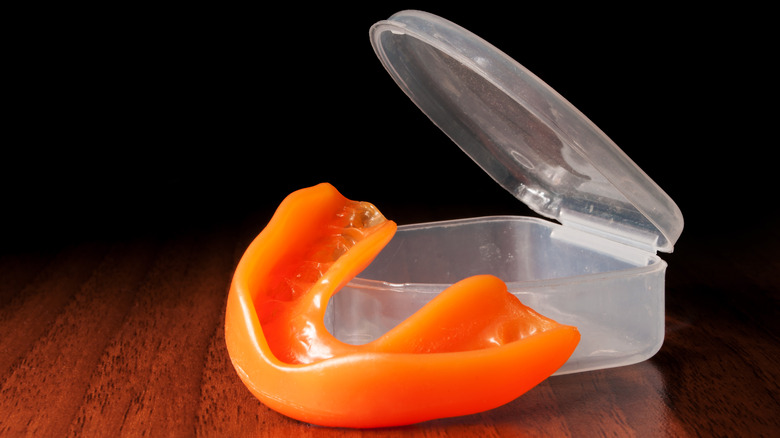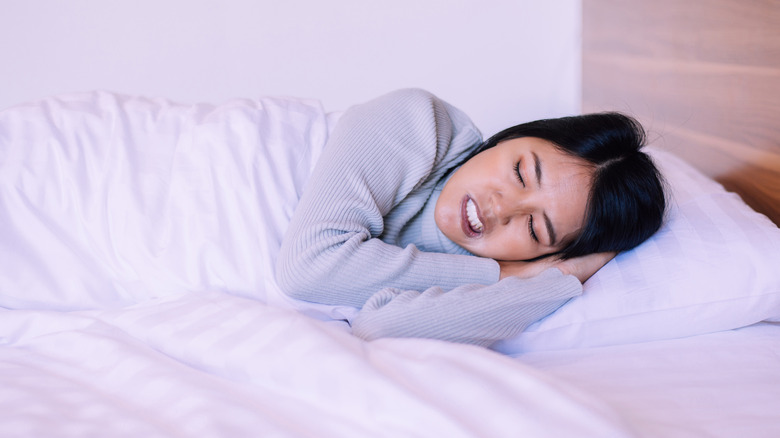What Really Happens When You Sleep With A Mouth Guard
Nightly mouth guards are nothing new in the world of TV and movies. They can be found in everything from cartoons to teen flicks to rom coms. And while they're usually the butt of some joke or other, they're incredibly helpful for those who suffer from bruxism. The American Sleep Association explains that bruxism is the official name for grinding or clenching your teeth in your sleep. It's not a particularly common disorder, affecting between 15-40% of children and only 8-10% of adults (via The Cheney Clinic).
The Mayo Clinic states that bruxism is often connected to other sleep disorders like sleep apnea. And while mild cases might not need specific treatment, more severe cases can be helped through interventions like the ubiquitous mouth guard. But one look at the little dental devices doesn't make it clear how they help treat the condition or why they help people stop grinding their teeth.
They alleviate pressure
The bad news is, mouth guards won't stop a person from grinding their teeth. The Mayo Clinic explains that personality, stress level, and genetic factors are the most common roots of bruxism. Addressing these points, at least when possible, is the best way to prevent bruxism altogether. Even the American Dental Association recommends reducing stress as a means of treating the condition.
Mouth guards are still important tools in treating bruxism, even if they don't cure it. When a person with bruxism wears their mouth guard at night, it creates a buffer between the upper and lower sets of teeth. This buffer is usually softer than the teeth themselves, reducing the pressure between the sets of teeth. The American Sleep Association says that, in addition to relieving pressure on the teeth, this cushion can help reduce face and jaw pain. Each mouth guard is unique to the person that wears it. Some are one-size-fits-all or custom made, while others fall somewhere in between.
There is no easy cure for bruxism and mouth guards might only help reduce pain caused by the condition, but they can only do that when they are worn every night. So regardless of the jokes in movies or the discomfort as you get used to it, if you grind your teeth, you'll want to keep your mouth guard handy.


